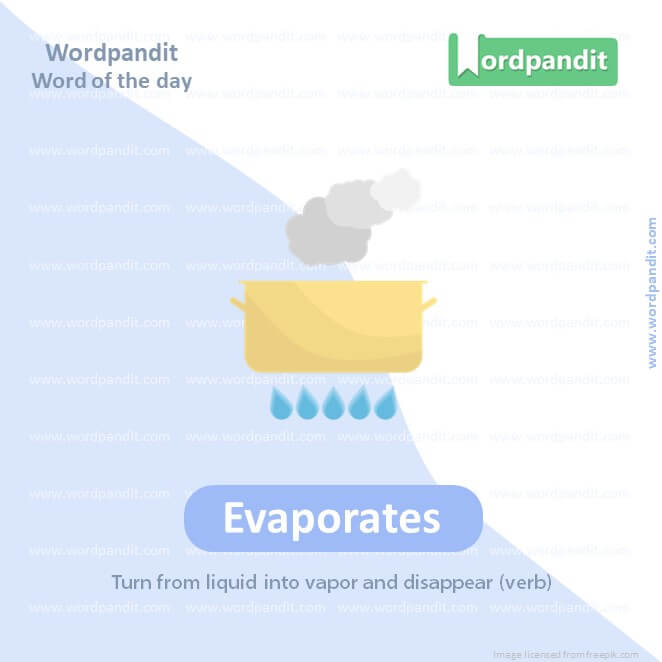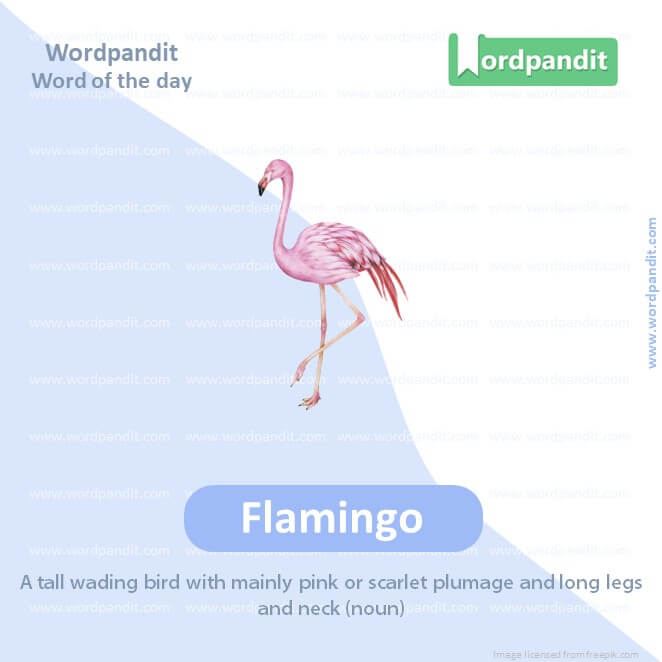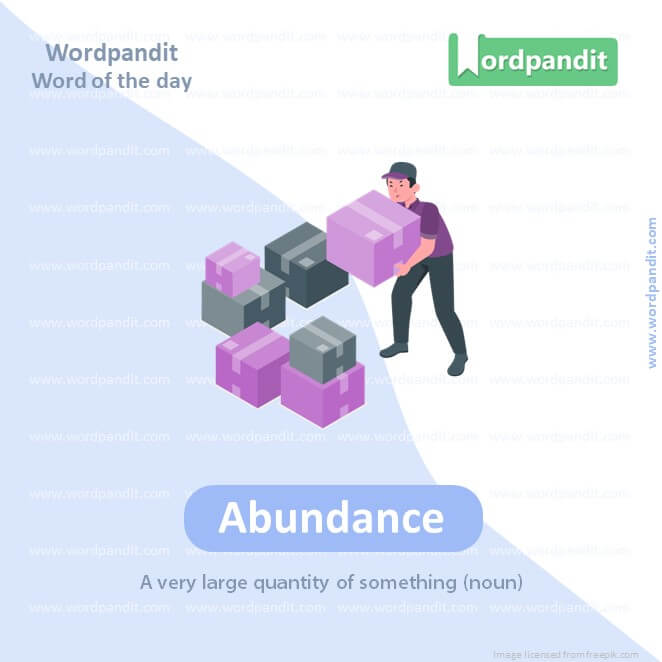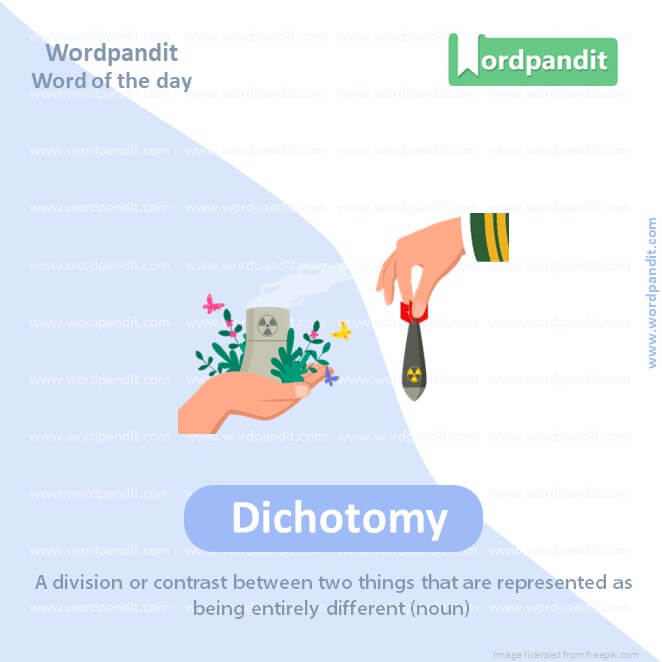Daily Vocabulary Words: List of Daily Used Words in Leading International Newspapers
Hi there. Welcome to this special section @ Wordpandit.
Our endeavour here is very simple: to highlight important daily vocabulary words, which you would come across in leading newspapers in the country. We have included the following newspapers in our selection:
• The New York Times
• The Washington Post
• Scientific American
• BBC
• The Guardian
• Psychology Today
• Wall Street Journal
• The Economist
We are putting in extensive work for developing your vocabulary. All you have got to do is be regular with this section and check out this post on a daily basis. This is your repository of words that are commonly used and essentially, we are posting a list of daily used words. Hence, this has significant practical application as it teaches you words that are used commonly in leading publications mentioned above.
Visit the website daily to learn words from leading international newspapers.
WORD-1: Sprawl
CONTEXT: In the middle of Chile’s Atacama Desert, 750,000 acres of bright blue and yellow squares filled with salty groundwater (brine) sprawl across a vast landscape.
SOURCE: Scientific American
EXPLANATORY PARAGRAPH: Sprawl is like spreading out in every direction. It’s like when you lay on the floor and stretch your arms and legs out as far as they can go.
MEANING: The spread of urban areas into surrounding rural areas, often in an uncontrolled or unplanned way (noun); or to spread out over a large area in an untidy or irregular way (verb).
PRONUNCIATION: sprawl
SYNONYMS: Spread, Extension, Expansion, Stretch, Straggle, Uncontrolled growth
USAGE EXAMPLES:
1. Urban sprawl is a major concern for environmentalists.
2. The city continues to sprawl into the countryside.
3. She sprawled on the couch watching TV.
4. The toys were sprawled all over the floor.

WORD-2: Evaporates
CONTEXT: Pumped to evaporation ponds, the brine evaporates to leave behind a mixture rich in lithium and other salts.
SOURCE: Scientific American
EXPLANATORY PARAGRAPH: Evaporates means to change from liquid into vapor and disappear. It’s like when water in a puddle dries up and goes into the air on a sunny day.
MEANING: Turn from liquid into vapor and disappear (verb).
PRONUNCIATION: ih-vap-uh-reyts
SYNONYMS: Vaporize, Disappear, Dissipate, Dry up, Vanish, Sublimate
USAGE EXAMPLES:
1. The water evaporates quickly in the hot sun.
2. As the day warmed, the dew on the grass evaporated.
3. The puddle had completely evaporated by noon.
4. The liquid in the beaker evaporates when heated.
WORD-3: Exacerbate
CONTEXT: rine mining has the potential to exacerbate drought conditions for local communities and affect local wildlife: the Atacama mine puts water supplies for nearby Indigenous communities at risk and has contributed to dramatic declines in flamingo populations.
SOURCE: Scientific American
EXPLANATORY PARAGRAPH: Exacerbate is like making a problem or situation worse. It’s like when you keep poking a sore spot instead of letting it heal.
MEANING: Make a problem, bad situation, or negative feeling worse (verb).
PRONUNCIATION: ig-zas-er-beyt
SYNONYMS: Worsen, Aggravate, Intensify, Heighten, Increase, Magnify
USAGE EXAMPLES:
1. His angry comments only served to exacerbate the situation.
2. Pollution can exacerbate asthma symptoms.
3. The delay exacerbated our anxiety.
4. Economic instability was exacerbated by political uncertainty.

WORD-4: Flamingo
CONTEXT: rine mining has the potential to exacerbate drought conditions for local communities and affect local wildlife: the Atacama mine puts water supplies for nearby Indigenous communities at risk and has contributed to dramatic declines in flamingo populations.
SOURCE: Scientific American
EXPLANATORY PARAGRAPH: A flamingo is a tall, pink bird with long legs and a long neck. It’s famous for standing on one leg in the water.
MEANING: A tall wading bird with mainly pink or scarlet plumage and long legs and neck (noun).
PRONUNCIATION: fla-min-goh
SYNONYMS: N/A (specific animal species)
USAGE EXAMPLES:
1. We saw a flock of flamingos at the lake.
2. The flamingo’s pink color comes from its diet.
3. A flamingo can often be seen standing on one leg.
4. The wildlife reserve is home to many flamingos.
WORD-5: Feasible
CONTEXT: Fortunately, real and increasingly feasible alternatives to harmful mining practices are coming. If we continue to invest in them, we can sustainably build the EVs that will advance us toward our electrification goals.
SOURCE: Scientific American
EXPLANATORY PARAGRAPH: Feasible is when something can be done or is possible to do. It’s like if you can finish your homework in one hour, it’s feasible.
MEANING: Possible to do easily or conveniently; likely to be successful or practical (adjective).
PRONUNCIATION: fee-zuh-buhl
SYNONYMS: Possible, Doable, Practicable, Viable, Achievable, Workable
USAGE EXAMPLES:
1. It’s not feasible to finish the project in one day.
2. They discussed several feasible solutions.
3. It seems feasible to travel there by train.
4. A feasible plan was put forward at the meeting.

WORD-6: Abundance
CONTEXT: The ocean floor presents another promising alternative. There, an abundance of small rocks rich in minerals could be extracted for processing into critical minerals.
SOURCE: Scientific American
EXPLANATORY PARAGRAPH: Abundance means having a lot of something. It’s like having so many toys that they won’t all fit in your toy box.
MEANING: A very large quantity of something (noun).
PRONUNCIATION: uh-bun-duhns
SYNONYMS: Plentifulness, Ample, Bounty, Profusion, Copiousness, Wealth
USAGE EXAMPLES:
1. The region has an abundance of wildlife.
2. He grew up in a home filled with an abundance of love.
3. The garden was in full bloom, displaying an abundance of colors.
4. There was an abundance of food at the feast.

WORD-7: Dredging
CONTEXT: While traditional seabed mining relies on dredging, which can destroy the seabed, new innovative techniques that avoid these damages are being developed.
SOURCE: Scientific American
EXPLANATORY PARAGRAPH: Dredging is like scooping out mud, sand, and other stuff from the bottom of rivers, lakes, or oceans. It’s like cleaning the bottom of a water place.
MEANING: Clean out the bed of (a harbor, river, or other area of water) by scooping out mud, weeds, and rubbish with a dredge (verb).
PRONUNCIATION: dredj-ing
SYNONYMS: Scooping, Cleaning, Clearing, Deepening, Excavating, Removing sediment
USAGE EXAMPLES:
1. The river was dredged to allow larger boats to pass.
2. Dredging is necessary to maintain the depth of the harbor.
3. Environmentalists are concerned about the effects of dredging.
4. The dredging project took several months to complete.

WORD-8: Dichotomy
CONTEXT: But the apparent trade-off between either sticking with gasoline vehicles or damaging the environment through unsustainable mining practices is a false dichotomy.
SOURCE: Scientific American
EXPLANATORY PARAGRAPH: Dichotomy is like splitting something into two very different parts. It’s like having two completely opposite choices.
MEANING: A division or contrast between two things that are represented as being entirely different (noun).
PRONUNCIATION: dih-kot-uh-mee
SYNONYMS: Division, Contrast, Split, Bifurcation, Duality, Polarization
USAGE EXAMPLES:
1. The dichotomy between good and evil is often explored in literature.
2. There is a dichotomy in public opinion on this issue.
3. The study highlights the dichotomy of the human mind.
4. The dichotomy between theory and practice can be challenging.
WORD-9: Vastness
CONTEXT: We started with water as a climate change issue, delved into light pollution and nuclear waste, investigated controversial Supreme Court decisions, explained social justice issues and ended with a hard look at artificial intelligence, all while exploring the vastness of space and the confines of quanta.
SOURCE: Scientific American
EXPLANATORY PARAGRAPH: Vastness means being very big or huge in size or amount. It’s like looking at the ocean and seeing how it goes on and on and never seems to end.
MEANING: The quality of being immense or very great in size or amount (noun).
PRONUNCIATION: vast-ness
SYNONYMS: Immensity, Enormity, Extent, Greatness, Expanse, Magnitude
USAGE EXAMPLES:
1. She was awestruck by the vastness of the universe.
2. The vastness of the desert was overwhelming.
3. His knowledge on the subject showed vastness and depth.
4. The vastness of the ocean made the ship seem tiny.
WORD-10: Eschew
CONTEXT: As editors, we shared our expertise on conservation, the modernization of building codes, school start times’ effects on children and the ways that politicians continue to eschew evidence in pushing dangerous, dehumanizing agendas.
SOURCE: Scientific American
EXPLANATORY PARAGRAPH: Eschew means to avoid doing something or to stay away from something. It’s like not eating a food you don’t like.
MEANING: Deliberately avoid using or abstain from (verb).
PRONUNCIATION: es-choo
SYNONYMS: Avoid, Abstain from, Steer clear of, Shun, Refrain from, Forgo
USAGE EXAMPLES:
1. He eschewed alcohol for health reasons.
2. The company eschews traditional advertising methods.
3. She eschewed the offer of a high-paying job to pursue her art.
4. It’s wise to eschew risky investments.
Vocabulary English Grammar
Delving into the vast universe of language learning, the ‘Vocabulary English Grammar’ acts as a beacon, illuminating the path to mastery. This synergy of words and rules forms the quintessential framework of the English language. However, understanding ‘Vocabulary English Grammar’ in-depth requires a fine-tuned strategy.
First and foremost, understanding ‘Vocabulary English Grammar’ goes beyond only remembering rules and words. It involves learning how a word functions in a grammatical context. To achieve this, resources like textbooks, online grammar guides, and interactive language learning apps prove to be very valuable.
However, embracing ‘Vocabulary English Grammar’ calls for consistent practice. Adopting thematic learning, where you concentrate on a specific grammatical concept and the vocabulary related to it, can be particularly effective. Reading material like articles and books, or engaging with podcasts and films can provide a real-world context to these concepts.
The key to mastering ‘Vocabulary English Grammar’ lies in constructing sentences. Instead of memorizing disconnected words and rules, start framing sentences. This active application significantly bolsters comprehension and provides practical insight into how grammatical rules govern the use of words.
To truly excel in ‘Vocabulary English Grammar’, it’s important to seek feedback. Participate in language exchange platforms or conversation clubs. These platforms provide an opportunity to apply what you’ve learned and obtain constructive feedback on your progress.
In essence, understanding ‘Vocabulary English Grammar’ is a step-by-step process that requires thoughtful learning, constant practice, application, and proactive feedback. By embedding these techniques into your language learning routine, you can confidently navigate ‘Vocabulary English Grammar’. Remember, mastering ‘Vocabulary English Grammar’ is not about perfection, but about progression and communication. Each rule learned, each word comprehended, brings you closer to the fluency in your English language journey.







